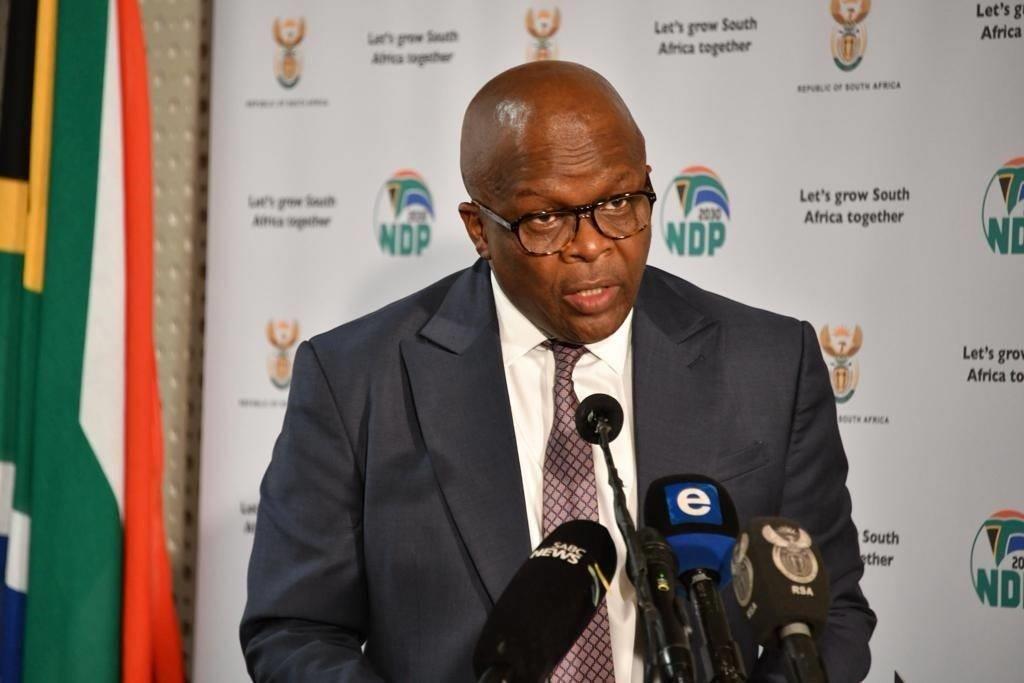Africa-Press – South-Africa. Government means to set a new date for the completion of the digital migration programme, which has been delayed.
Officials from Treasury and the Presidency on Friday provided an update on the progress made by Operation Vulindlela during the second quarter. Operation Vulindlela was set up to give effect to structural reforms needed to achieve economic growth. It aims to unlock administrative and other operational bottlenecks across the energy, telecommunications, transport, water and tourism sectors.
There are 26 priorities in total, and so far, nine have been achieved, according to National Treasury’s chief director of microeconomics, Nomuyo Guma. When the first-quarter report was published, eight of the priorities were achieved. So far, 11 priorities are considered to be progressing well.
During the second quarter, the review of the policy framework and procedures for issuing work visas, particularly for scarce skills, was completed. The priority dealing with the rapid deployment policy and policy direction is back on track, Guma added. Other achievements include the clearing of the backlog on water use licence – there were almost 1 000 outstanding licences at the start of the quarter.
Specialist nurses, chemists, dentists added to SA’s critical skills list
“However, this was partially offset by a missed deadline with respect to completing the migration from analogue to digital signal … a new date will be communicated shortly once the relevant department has finalised its consultations with stakeholders,” said Guma.
Earlier this year, the Constitutional Court ruled that the previous deadline of 31 March was unlawful and unconstitutional.
The court ruled that the Communications and Digital Technologies Minister Khumbudzo Ntshavheni consult with stakeholders before determining a date for the analogue switch-off.
Minister in the Presidency Mondli Gungubele noted the ruling and said it would not delay the “final execution” of the priority.
Finance Minister Enoch Godongwana also addressed the briefing and was frank that the completion of the digital migration and improving Eskom’s energy availability factor are among the “minority” of the reforms that are “not on track”. However, Godongwana assured steps are being taken to get these reforms on track as quickly as possible – as evidenced by the establishment of the National Energy Crisis Committee, which will speed up reforms in the sector.
Efforts to address the electricity crisis got the “greatest focus” during the quarter, explained Gungubele. He noted that since the licence threshold for generation projects was raised, the pipeline of these projects had expanded beyond 80 with a capacity of 6 000MW. On an administrative level, the registration of projects by National Energy Regulator of South Africa (Nersa), had been shortened from four months to 19 days.
Similarly, timeframes for obtaining environmental authorisation has shortened – from close to 150 days to 57 days, Gungubele added. He noted that the Grid Access Unit at Eskom also now has more capacity to be able to expedite processes for grid connection approvals.
Ramaphosa’s 10-point power crisis plan: What you need to know
Going forward, among the key priory areas include implementing the energy action plan, explained Rudi Dicks, head of the project management office in the Presidency. “The main focus for the next few weeks and months is to ensure the swift and full implementation for the energy action plan that was announced, including the removal of the licensing threshold and doubling capacity for Bid Window 6,” said Dicks.
Requests for proposals for private sector participation in the container terminals at the Ports of Durban and Ngqura are set to be published on 8 August. This will enable partnerships to be set up by January next year and will help improve port performance, he explained.
There will also be steps taken to enable third-party access to rail slots, with Transnet making 16 available on the Duran-City Deep and Pretoria-East London lines. Dicks said that 19 bidders had expressed interest, and the deadline for proposals is at the end of this month. This will all be enabled with the passing of the Economic Regulation of Transport Bill.
Other developments in the legislative space to enable reforms include the final version of the Electricity Regulation Amendment Bill being submitted to the Cabinet and tabled in Parliament. The bill is important for establishing an independent transmission company and will help ensure a competitive electricity market.
Government will also look into the feasibility of a visa recognition scheme – which will allow holders of visas from “recognised third countries” to enter South Africa.
For More News And Analysis About South-Africa Follow Africa-Press






